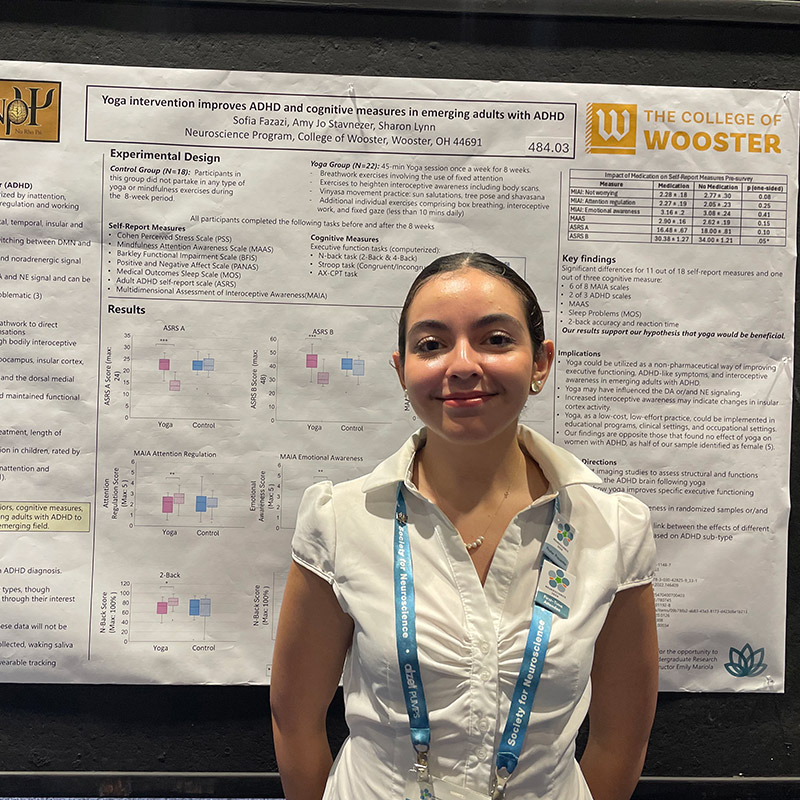
Wooster students present research at Society for Neuroscience annual meeting
Four students from The College of Wooster presented original research from their sophomore research and Independent Study projects at the Society of Neuroscience annual […]
During the past four decades, more than two-thirds of the department’s graduates entered M.A. or Ph.D. programs in psychology or related areas, such as education, law, social work, criminology, and medicine. Several recent students are in graduate programs at the Chatham University, Cleveland State University, Penn State University, Purdue University, Tufts University, UCLA, University of Colorado-Boulder, Massachusetts-Amherst, Michigan, and Pennsylvania. Other graduates enter the job market in a variety of settings — social services, personnel managers, and computer analysts — immediately after graduation. Recent graduates include a school psychologist, a physician’s assistant, several lawyers, and a resident physician in neurology.
Modern labs, a talented faculty, and a wide range of research opportunities make Wooster a good choice for students interested in psychology. Psychology majors at Wooster can conduct research through the Pew Sophomore Research Program, designed specifically to encourage sophomores to become involved in projects with faculty. With small classes and full-time faculty members who are dedicated to undergraduate teaching, psychology majors are well-prepared for graduate school or careers working in social services, human resources, as computer analysts, or a number of other fields. All students at The College of Wooster complete an independent study under the guidance of a faculty mentor and deliver a thesis in the spring semester of their senior year. The emphasis on critical analysis and research gives Wooster graduates skills they can use in any field.
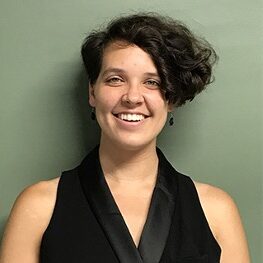
Walter D Foss Distinguished Visiting Assistant Professor of Psychology
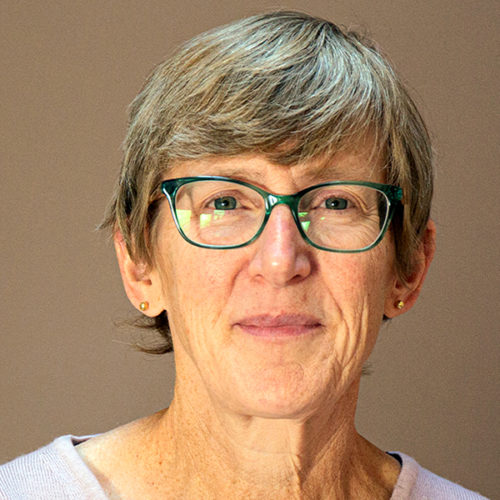
Whitmore-Williams Professor and Department Chair of Psychology; Liaison to the Environmental Communication & Action Pathway
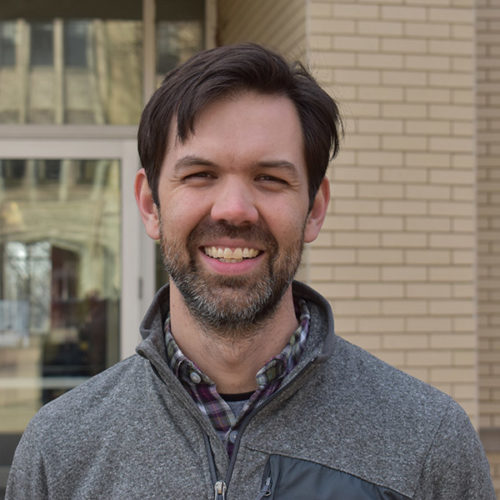
Associate Professor of Psychology; Neuroscience (On Leave Spring 2025)

Associate Professor of Psychology; Department Chair of Neuroscience

Administrative Coordinator, Notary Public - Economics and Business Economics, Education, Psychology

Four students from The College of Wooster presented original research from their sophomore research and Independent Study projects at the Society of Neuroscience annual […]
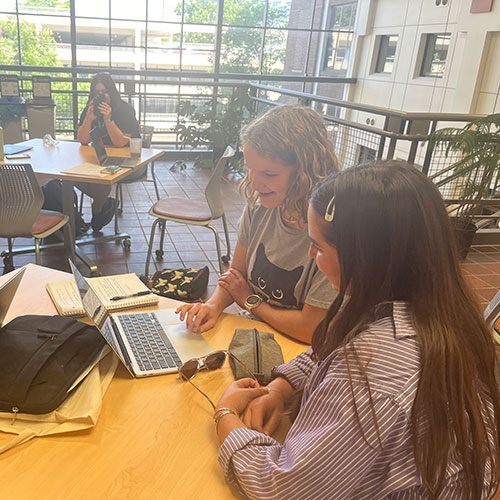
Ella Peterson ’25, a psychology major at The College of Wooster, spent the summer working with children as a research intern at the Michigan […]
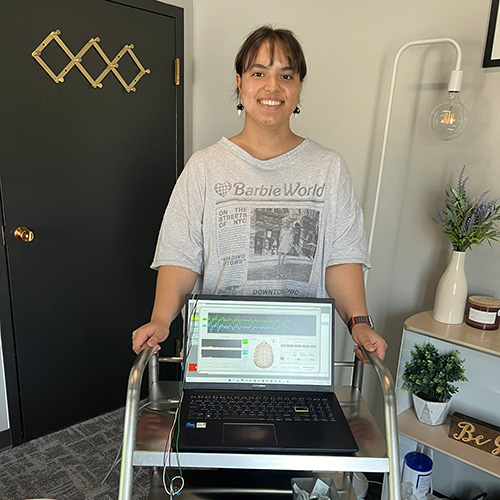
Peyton Crook ’26, a psychology major and minor in statistical & data sciences and women’s, gender, & sexuality studies, knew she wanted to gain […]

Anna Chapman ’25, a French and Francophone studies and psychology major at The College of Wooster, attended an internship fair at the College to […]
A major in psychology begins with Introduction to Psychology, in which students study empirical approaches to psychological questions, including basic processes of learning and motivation; complex individual differences in intelligence, personality, and abnormal behavior; and social influences on aggression and attraction. Majors then select at least one intermediate-level course reflecting the diversity of psychological topics from 200 level or 300 level corses. The recent 200 and 300 level courses are below:
Early in their study of psychology, majors obtain experience in planning and conducting research and in writing about their findings — skills necessary for independent research in their junior and senior years.
Before psychology majors take more advanced courses, they are required to take a course in statistics and experimental design. Here, they learn the basic principles of descriptive statistics, inferential statistics, and experimental design. In the upper-level writing-intensive courses, students apply this knowledge to intensive study of such areas as perception, memory and cognition, social psychology, and developmental psychology.
In addition to the required courses, majors may also select from a broad range of non-laboratory courses, like neuroscience.
View CoursesA minor in psychology requires completion of six courses, including introductory courses in psychology and statistics and intermediate courses that range from behavior and cognitive neuroscience to courses on developmental and educational psychology.
View CoursesAll students at The College of Wooster complete an independent study under the guidance of a faculty mentor.
Psychology majors are encouraged to develop an I.S. topic that stems from one of the various courses that they have taken over their first three years. Each laboratory course requires research proposals that can spark an idea for an I.S. topic. At the end of the junior year, each student is asked to write a short summary that outlines the project that they will pursue for I.S.
In the senior year, students work with a faculty mentor to plan and execute the research project that involves data gathering and is grounded in studies from the comparative, cognitive, educational, personality, developmental, social, clinical, perception, or neuroscience literature. In the past two years, students have investigated a wide range of topics, including Childhood adverse experiences and academic achievement, decision making and social contexts, physical strain and empathy, prejudice and conceptions of free speech, parenting styles and academic success, gendered language, nature experiences, and narcissism and romantic relationships.
Many seniors have presented papers on their I.S. projects at professional meetings such as Ohio Academy of Sciences, the Association for Psychological Science, the Midwestern Psychological Association, the Ohio Undergraduate Research Conference, and the Auditory Perception, Cognition, and Action Meeting. Others have had papers based on their I.S. research accepted for publication in psychological journals.
| Student | Year | I.S. Title | Major 1 | Major 2 | Advisor |
|---|---|---|---|---|---|
| Please search to view results | |||||
Many psych majors go on to graduate school in psychology, medicine, law or a variety of other fields, although often they do something else for a year or two first, while others choose to get a job right after graduation.
Departmental Honors are conferred on students who meet the following criteria:
If students earned Honors on their I.S., the department will automatically consider them for Departmental Honors. If students did not earn a grade of Honors, they may still be considered for Departmental Honors at the end of their last semester at Wooster. Students earning a grade of Good and who meet the second and third criteria will automatically have their names submitted to the department by their advisor for consideration of Departmental Honors. The unanimous vote of the faculty has typically gone to those individuals who have made outstanding contributions to the department.
The Gordon D. Collins Scholarship was established in 2001 by his family, friends, and former students. It honors Gordon Collins, the first Whitmore-Williams Professor of Psychology, who retired in 2000 after 37 years as a member of the Psychology Department. The scholarship is awarded to a junior psychology major at the College who, in the evaluation of the Psychology faculty, has made a significant contribution to the College.
The David A. Leach Memorial Prize in Psychology was established in 1973 in memory of David A. Leach, a member of the department from 1966 through 1972. It is awarded annually to a senior psychology major for excellence in experimental psychology.